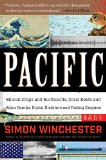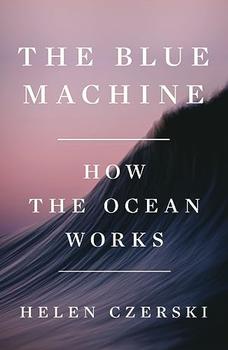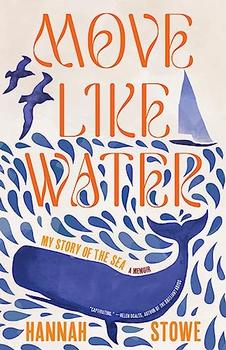Summary | Excerpt | Reviews | Beyond the book | Read-Alikes | Genres & Themes | Author Bio
Silicon Chips and Surfboards, Coral Reefs and Atom Bombs, Brutal Dictators, Fading Empires, and the Coming Collision of the World's Superpowers

Critics' Opinion:
Readers' Opinion:
First Published:
Oct 2015, 512 pages
Paperback:
Oct 2016, 512 pages
 Book Reviewed by:
Book Reviewed by:
Kim Kovacs
Buy This Book
Pacific is a paean to this magnificent sea of beauty, myth, and imagination that is transforming our lives.
As the Mediterranean shaped the classical world, and the Atlantic connected Europe to the New World, the Pacific Ocean defines our tomorrow. With China on the rise, so, too, are the American cities of the West coast, including Seattle, San Francisco, and the long cluster of towns down the Silicon Valley.
Today, the Pacific is ascendant. Its geological history has long transformed us - tremendous earthquakes, volcanoes, and tsunamis - but its human history, from a Western perspective, is quite young, beginning with Magellan's sixteenth-century circumnavigation. It is a natural wonder whose most fascinating history is currently being made.
In telling the story of the Pacific, Simon Winchester takes us from the Bering Strait to Cape Horn, the Yangtze River to the Panama Canal, and to the many small islands and archipelagos that lie in between. He observes the fall of a dictator in Manila, visits aboriginals in northern Queensland, and is jailed in Tierra del Fuego, the land at the end of the world. His journey encompasses a trip down the Alaska Highway, a stop at the isolated Pitcairn Islands, a trek across South Korea and a glimpse of its mysterious northern neighbor.
Winchester's personal experience is vast and his storytelling second to none. And his historical understanding of the region is formidable, making Pacific a paean to this magnificent sea of beauty, myth, and imagination that is transforming our lives.
Excerpt
Pacific
The Pacific is an oceanic behemoth of eye-watering complexity. A near-limitless range of human and natural conditions exists within its borders, as one would expect of something so unimaginably enormous. Arthur C. Clarke once remarked, with droll prescience, that a space traveler, upon seeing our planet, would say that calling it Earth was a grave misnomer, since most of it is so obviously Sea. He must surely have been thinking of the Pacific, since its blue expanse entirely dominates the planet.
Its dimensions are staggering. It occupies almost one entire hemisphere. Looking westward, from Panama, and from where Balboa stood on his high peak in the Isthmus of Darién, across to the first encountered landmass of the eastern Malaysian coast, there are more than 10,600 miles of uninterrupted sea. From north to south, from the fogs and shivering waters of the Bering Strait down to the ice cliffs of Marie Byrd Land in Antarctica, is nearly nine thousand miles. The ...
The result is not so much a coherent, start-to-finish history of a region as it is a series of fascinating snapshots that when put together forms a broad picture of it. It's not complete by any means, but it does move the reader toward a deeper understanding of the important part the Pacific has played in humanity's recent past and the role it's destined to play...continued
Full Review
(689 words)
This review is available to non-members for a limited time. For full access,
become a member today.
(Reviewed by Kim Kovacs).
In Pacific, author Simon Winchester closes with the image of the vessel Hokule'a, which he views as a symbol of hope for the people of the Pacific Islands and a physical manifestation of a return of respect for indigenous traditions.
The Hokule'a is built in the tradition of the ancient Hawaiian double-hulled voyaging canoe known as wa'a kaulua. Its name, which means "Star of Gladness," is what Hawaiians call the star, Arcturus. Since the Hokule'a's launch from O'ahu on March 8, 1975, the ship has sailed over 140,000 nautical miles using only native navigational techniques (more on this below).
In 1973 a group of Polynesian specialists and canoe enthusiasts formed the Polynesian Voyaging Society. Their objective at the time was to ...
This "beyond the book" feature is available to non-members for a limited time. Join today for full access.

If you liked Pacific, try these:

by Helen Czerski
Published 2024
A scientist's exploration of the "ocean engine"—the physics behind the ocean's systems—and why it matters.

by Hannah Stowe
Published 2023
A book to sweep you away from the shore, into a wild world of water, whale, storm, and starlight— to experience what it's like to sail for weeks at a time with life set to a new rhythm.





The Flower Sisters
by Michelle Collins Anderson
From the new Fannie Flagg of the Ozarks, a richly-woven story of family, forgiveness, and reinvention.

The House on Biscayne Bay
by Chanel Cleeton
As death stalks a gothic mansion in Miami, the lives of two women intertwine as the past and present collide.

The Funeral Cryer by Wenyan Lu
Debut novelist Wenyan Lu brings us this witty yet profound story about one woman's midlife reawakening in contemporary rural China.
Your guide toexceptional books
BookBrowse seeks out and recommends the best in contemporary fiction and nonfiction—books that not only engage and entertain but also deepen our understanding of ourselves and the world around us.